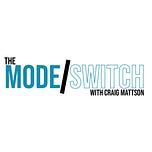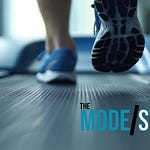Volume 1, Issue 21
Joycee Black was sobbing. Ugly-crying, was one word she used during our interview. Boo-hooing, was another. But even if she made light of it later, the experience itself was heavy. She had been watching a diversity-equity-and-inclusion video with some others in her field. I don’t think she had expected the video’s depiction to be so moving. Training videos usually aren’t tear-jerkers. But Joycee experienced this video’s depiction as personally overwhelming.
The story had centered on the experience of a Black man, wearing sweats who enters a courthouse. Everywhere he turned, he was stared at by White citizens who clearly didn’t want him near them, especially not on the same elevator. The video follows the White folks as they enter a courtroom and then shows the deputy calling out, “All rise for the Honorable….” Then, the camera pulls focus to the very African American who had been, just moments before, wearing informal clothes, but who is now ascending to the bench in judicial robes. The man, formerly judged untrustworthy, is now himself the judge.
The depiction of a Black citizen who’d done everything right but who still faced contempt was shattering to Joycee. The story came all too close to her own experience as a woman of Haitian descent, an Ohioan who had migrated to Chicago, a devoted and diligent employee of color. To make matters harder, Joycee’s companions were feeling restless after the video. They were emitting let’s-move-on indicators. Clearly, they had understood the point of the story. They had gotten the message. But their response was, Next slide, please.
Joycee asked herself why she felt triggered. This wasn’t a Spike Jones film or Jordan Peele production. It was a training video. But for her, the story had wrung her heart.
So, let me ask you the same question. What about your identity as an early career professional generates overwhelm? What triggers you to ugly-cry at work? Perhaps it’s being an ethnic minority in a working group. (Joycee works on a team whose members are Black, but she knows what it is to work in predominantly White spaces.) Perhaps it’s being a person of faith in a post-secular setting. Maybe it’s your gender, your sexuality, your guild.
The hardest question, though, is what to do with overwhelm when it is incomprehensible to your coworkers.
One temptation is to bake up a slice of what Joycee calls phony cake. The phrase, she explains, comes from her Ohio roots, referring to the dubious art of pretending somebody you distrust is actually a good friend. Think about that coworker who dependably says the wrong thing to you. Maybe you feel like it’s smart to stay on their good side. Maybe the thought of confronting their insensitivity is exhausting. Whatever your hesitation, Joycee’s advice is don’t cut a slice of phony cake
What might phony cake look like in your job?
Laughing at a joke that cuts you to the quick
Responding to emails within seconds of their arrival
Saying yes to unreasonable managerial requests
Waving off sexist remarks as if they were no big deal
Responding to texts from anxious managers at 10:30 PM
What Joycee has learned, both from the wise women who mentored her in Ohio and from her own experience in Chicago, has compelled her to say, I'm phony-caking with nobody.
The moral philosopher Charles Taylor would call Joycee’s position an ethic of authenticity. It’s a way of being in the world characterized by self-awareness and candor. It’s an ethic that responds to gaslighting with what both Michel Foucault and the Apostle Paul would call fearless speech.
Authenticity can, of course, lead you wrong. Taylor notes its tendencies towards individualism and incivility. “Just keeping it real” can be a disguise for disregard and a cover for narcissism. But for Joycee, an ethic of authenticity is an essential starting point for genuine teamwork. Not, she hastens to add, for intimate friendship. But for professional collaboration, fearless speech is essential to getting the job done well.
It didn’t take me long to figure out that Joycee is a courageous communicator. I noticed this, not only in our two private interviews, but when she led a team of undergraduate researchers on a tour of the nonprofit where she works. She has a compelling voice, a quick sense of humor, and a knack for identification with people different from herself. One of her favorite phrases in a group setting is, Talk to me, a phrase that evokes not just courage but hospitality as well.
Maybe you’re thinking right now, Great, well, I’m not a fearless speaker like Joycee. But a second thing I’ve learned from interviewing her and from witnessing her work is that she knows the limits of her own rhetorical mode. She’s seen that mode pull her into dubious situations—like the time she was trying to encourage a coworker to speak truth to power only to have that friend plead, “Would you just say it for me, please?” Or the time when a manager took advantage of Joycee’s willingness to say the quiet part out loud and asked her to fire a perceived underperformer. When asked why the firing was necessary, the manager said he disliked the employee’s laugh.
There are occasions, in other words, when fearless speech requires a mode switch, occasions when no language, no data, no storytelling is sufficient for the problems at hand. It’s at times like that when Joycee switches from her usual talkativeness to what she calls the Face. Joycee was hardly the only person to tell me about the importance of nonverbal communication in her work. But she was the only person I’ve talked to so far willing to show me what this expression looks like: forceful, devoid of fakery, ironclad.
It strikes me how vital the Face is in an era of remote work. In the story above, when Joycee wept during the DEI training, she had to flip off her camera and give way to sobs. But when the camera came back on, so did the Face. That expression communicated to her colleagues what outspokenness never could have.
Joycee’s story reminds me of a paradox in vocational overwhelm that’s come clear in my research. On the one hand, vocational overwhelm is an experience of excess. Everything in the moment feels utterly too much. On the other hand, there’s an experience of scarcity that makes you want to hoard attention, empathy, language.
But doing a mode switch—from phony cake to fearless speech, from fearless speech to the Face—isn’t a hoarding move. It can be instead the truest and most generous way to be a person with other persons in a sometimes depersonalizing world.
Who I’m Learning From
Charles Taylor’s The Ethics of Authenticity. This short work of moral philosophy is accessible. I know, I’m an egghead who likes hard books. But this highly readable volume tells you the downsides and the upsides of Keeping It Real. You’ll probably recognize who you are and, more importantly, who you might become.
Spike Lee’s BlacKkKlansman. My daughter pulled me into this movie this past week, a story that, with surprisingly literalness and hilarity, works out what phony cake and fearless speech can sound like in racist society and in inter-racial collaboration.
Daniel Kahneman’s Thinking, Fast and Slow. My friend Andrew Holmes gave me this book a month or so ago, a gift that also has me thinking hard about speaking fast and slow.
What’s your example of “phony cake?” Mix me up a note and share. — Craig















Share this post